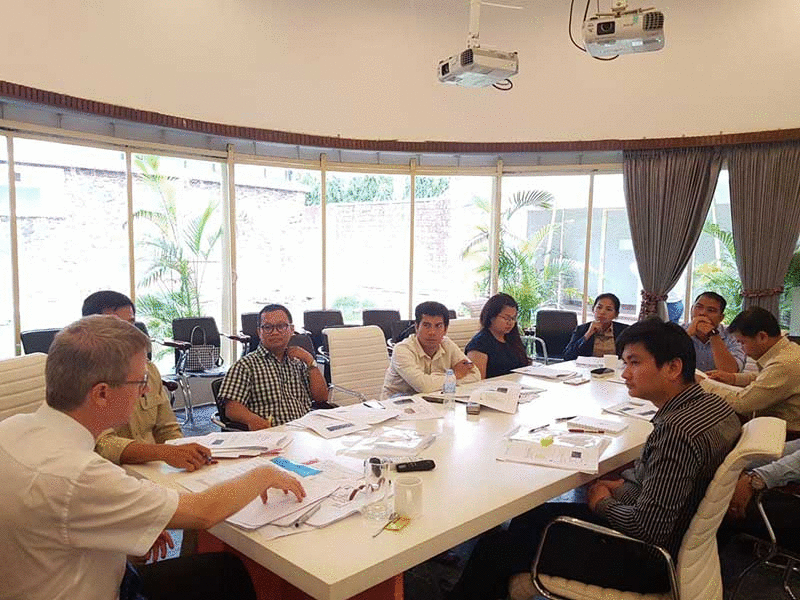The Parliamentary Institute of Cambodia (PIC) organized training workshops on legislative process & drafting and policy evaluation on 19-21 June 2018 and 25-26 June 2018 in collaboration with Professor Felix Uhlmann from the University of Zurich (UZH) and Professor Frédéric Varone from the University of Geneva (UNIGE).
Approximately 65 participants comprised of PIC legal working group (staff from the National Assembly and Senate), PIC staff, and parliamentary staff (from the commissions, and legal research and legislative departments) of the National Assembly and Senate joined the events that took place at the Senate of Cambodia. The training activities consisted in seminar-style sessions in the morning aiming to build general knowledge of participants of various key concepts related to legislative drafting and policy evaluation. In the afternoon, specialized training classes involved PIC legal working group members so that they learn the know-how (methods, tools and processes) of legal drafting and policy evaluation.
Felix Uhlmann, professor of constitutional and administrative law and of lawmaking at the University of Zurich expressed that the participants “were highly motivated, not only in the group discussions but also in the plenary sessions”. He pointed out that “questions and comments showed that ideas of good legislation were fully understood and well received”. Professor Uhlmann discussed, among others, the fundamental question of what is understood by a “good” law and how legislative quality is measured. He also presented a wide range of regulatory instruments and addressed questions of process such as fact gathering and public participation. It is also covered topics such as legislative architecture, scope of the law, legal definitions and cross references. PIC legal working group presented their draft guideline on the Cambodian legislative process and the document was discussed and commented by Professor Uhlmann.
Frédéric Varone, a professor of policy analysis and head of the Department of Political Science and International Relations of UNIGE, indicated that he “really appreciated the vivid discussions about the development of methodological evaluation design and the institutionalization of policy evaluation in Cambodia”. He raised that motivated parliamentary assistants are a key resource for capacity building in policy evaluation. He stated that policy evaluation is one potential source of information enabling MPs to fulfill their lawmaking and oversight functions since as it “aims to deliver new insights about the quality of a policy design, the progress of its implementation and its final impacts on economy and society. MPs and their staff are thus the stakeholders par excellence of policy evaluations, whose results should reduce uncertainty about policy effects and information asymmetry between the government and parliament”.

